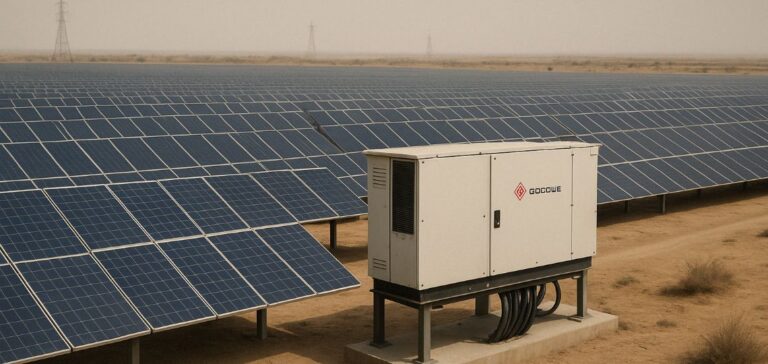Kosol Energie, an Indian manufacturer of photovoltaic modules and engineering, procurement and construction (EPC) service provider, has completed the commissioning of a 10 megawatt (MW) solar project for Gujarat State Electricity Corporation Limited (GSECL), the state-owned power producer in Gujarat. Located in the desert region of Kutch, which is known for its extreme temperatures, the installation relies on 350 kilowatt (kW) UT string inverters supplied by GoodWe, a global company specialising in solar energy conversion solutions.
Faced with severe environmental conditions, the power plant was designed to maintain steady energy output. According to Kosol Energie, the integration of GoodWe inverters enables a daily generation estimated at 70 megawatt-hours (MWh). The equipment notably features a potential-induced degradation (PID) recovery function, a phenomenon worsened by high heat and humidity. With an IP66 rating and C5 corrosion resistance, the inverter infrastructure ensures durability against dust and corrosive agents.
Technology tailored to India’s desert conditions
The project highlights the suitability of GoodWe’s photovoltaic equipment in regions subject to harsh weather conditions. Kosol Energie underlined the consistent performance of the inverters in an environment where temperature peaks pose a barrier to stable energy production. According to Harish Sharma, Project Head at Kosol Energie, the systems have exceeded expectations, delivering 10 to 15 percent higher energy output compared to previously deployed products.
Future cooperation prospects between the companies
Kosol Energie plans to expand this collaboration with GoodWe by adopting its inverters as the reference solution for upcoming solar deployments. This strategic direction reflects an intent to standardise equipment across projects requiring heightened operational reliability in zones exposed to specific environmental stresses.






















